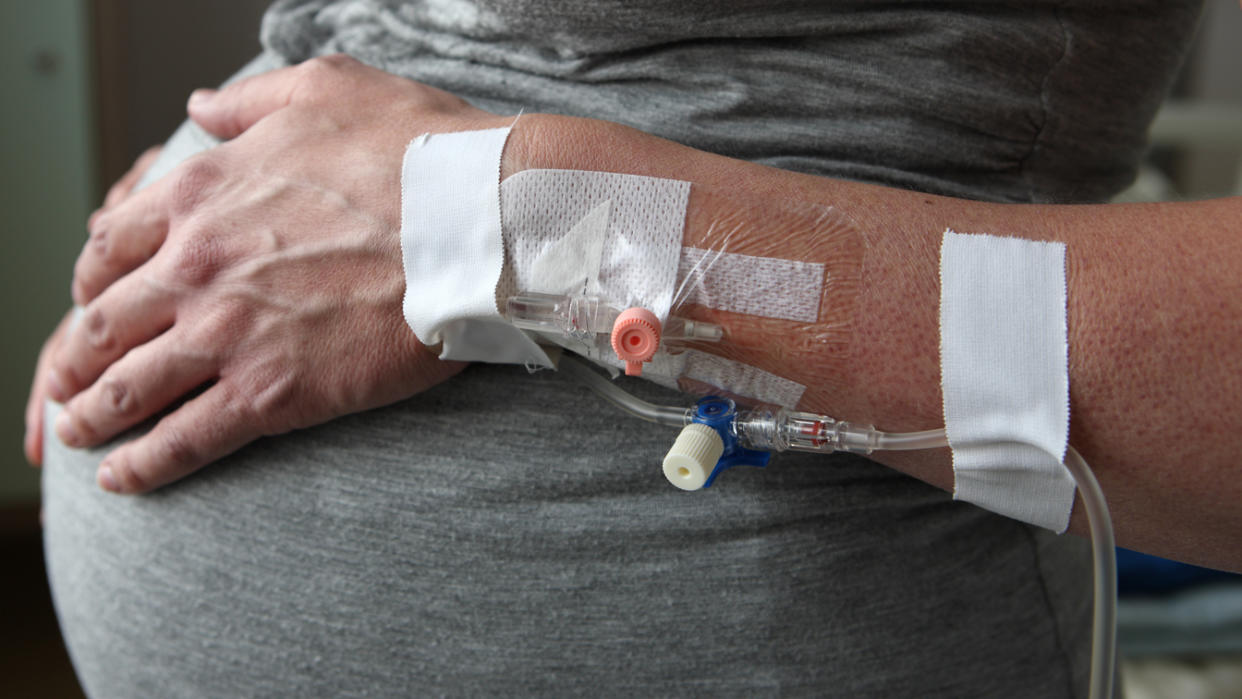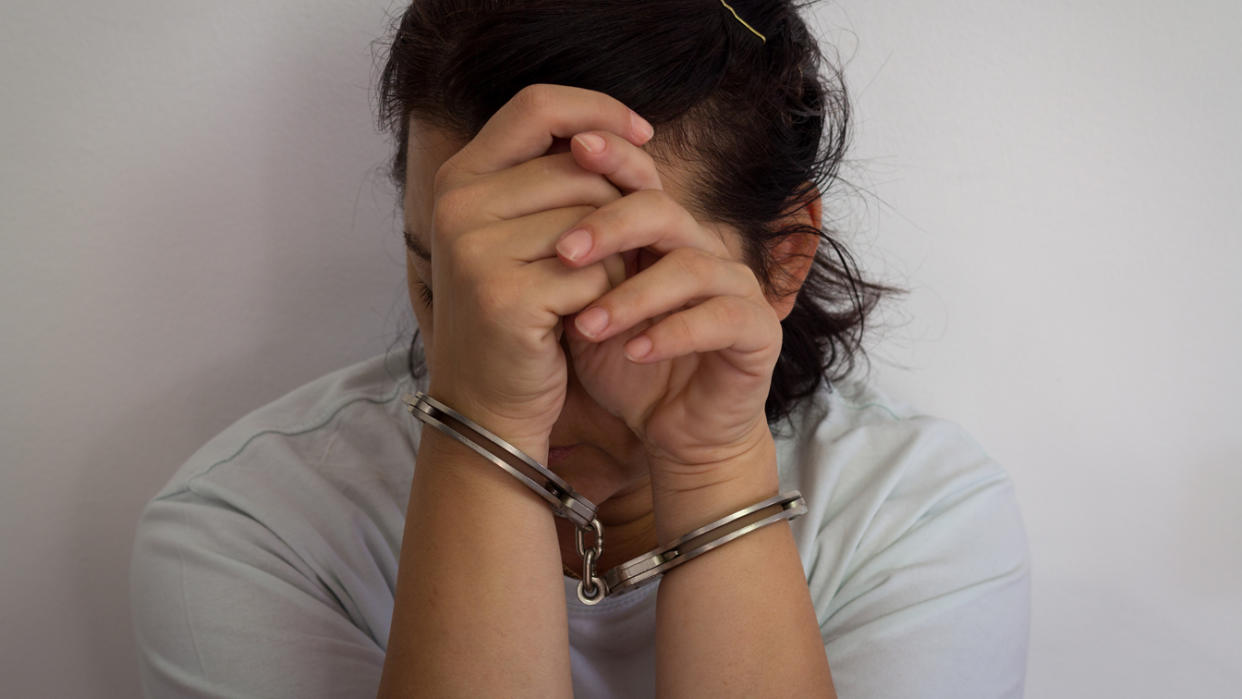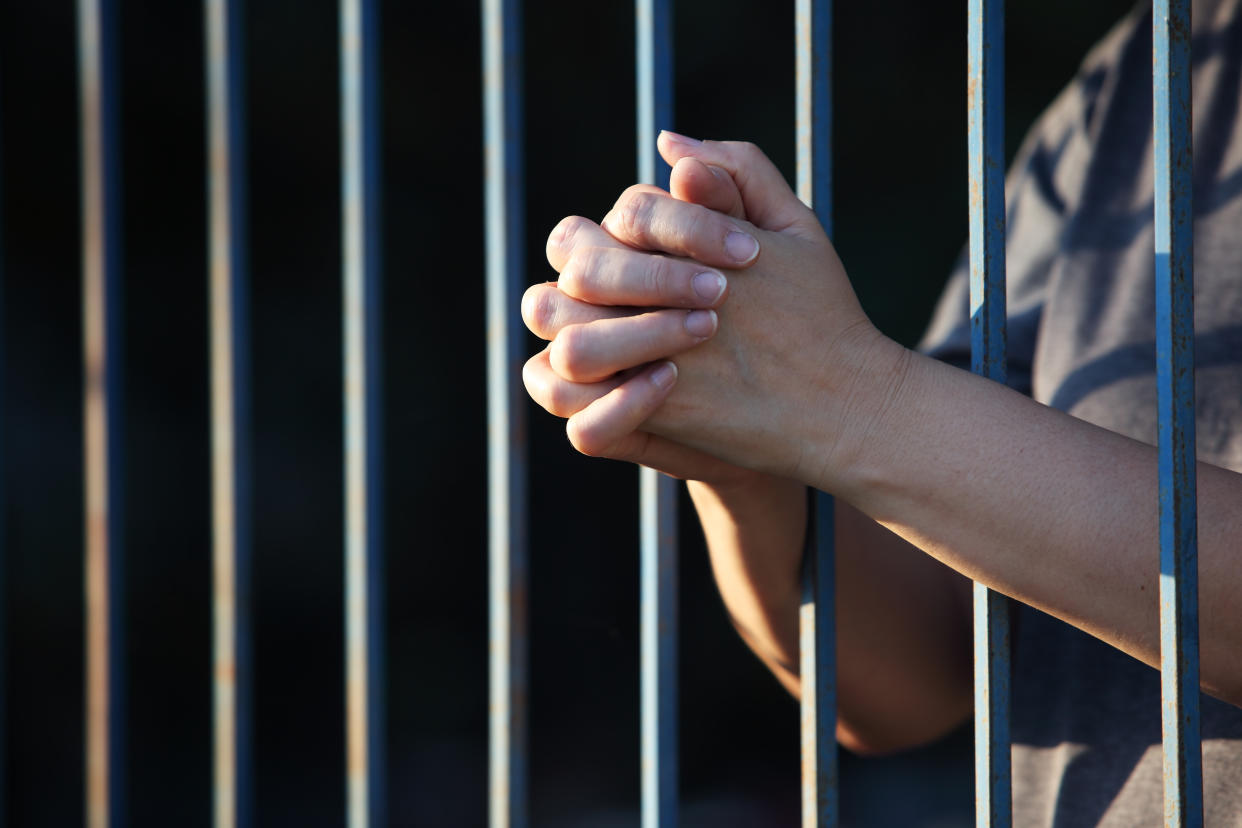Bill to protect incarcerated women passed in 14 states as reform for female inmates gains national momentum

When she was six weeks pregnant, Pamela Winn was sentenced to serve 78 months at a federal prison for a white-collar crime. Anytime she had to be transported, she was shackled — with handcuffs around her ankles and a chain around her waist that bound her hands to a black box in front of her.
“One particular day that I was going out, they had put the ankle cuffs on a little tight. … By the time I made it to the van, they were biting into my ankles. And it was really painful. And when I tried to step up, I fell, and at the time that I fell, there was no ‘Are you OK?’” Winn told Yahoo News.
A few days later, she began bleeding abnormally. Winn, who worked as a surgical nurse specializing in women’s health prior to her imprisonment, knew something was wrong. When she reported it to the medical staff, they dismissed her, telling her that bleeding was normal with pregnancy.
“They told me bluntly that the facility was built for men and they didn’t expect to have women and they definitely didn’t expect to have a pregnant woman. And there was nothing that they could do for me,” she said.
Complaints like Winn’s are why a growing number of states have passed a bill that reforms the way women behind bars are treated, with Arizona being the latest to sign it into law on June 30, joining 13 others, including Mississippi, Florida, California and New Jersey. The legislation, known as the Dignity for Incarcerated Women Act, is a response to the fact that women, 80 percent of whom are mothers, are now the fastest-growing population behind bars, yet they often face conditions that fail to protect their health or consider their roles as mothers.

In Winn’s case, the prison was unable to provide any sort of medical treatment. The only option was for her to request permission to be taken to an external doctor at an ER. She had to submit three medical requests, with four weeks in between for approval, before she finally received an ultrasound, after which she was told she needed to wait another four weeks for the results.
She ended up miscarrying at 20 weeks without having had any formal prenatal care.
During the miscarriage, it took hours for Winn to be brought to the hospital. “I endured the remainder of my miscarriage shackled to the bed," she said, "with two male officers between my legs that refused to leave the room [or] simply move to a different side of the room to provide me any privacy, which was extremely humiliating.” When the doctor asked for the soiled linen with her baby, an officer told her it had been thrown in the trash.
This moment, Winn said, was “the lowest point of my life, to hear that, you know, my baby, my child, something that was a part of me, had been thrown in the trash.”
For women in prison, stories like this are common. Pregnant women are forced to give birth in shackles, and mothers are sent hundreds of miles away from their children. Advocates say women are also denied adequate hygienic items and are forced to purchase them at exorbitant costs. They also say male guards conduct strip searches of female inmates and supervise them while they take showers.

After she was released from prison, Winn’s experience led her to become an advocate to end intolerable conditions for women behind bars. She worked with Sen. Cory Booker, D-N.J., to draft the federal Dignity for Incarcerated Women Act, which was introduced to Congress in 2017 by Booker; Sen. Elizabeth Warren, D-Mass.; Sen. Dick Durbin, D-Ill.; and then-Sen. Kamala Harris, D-Calif.
After making little progress on the federal level, Winn began working with Dream Corps, a nonprofit focused on bipartisan solutions to criminal justice reform issues, to push the Dignity Act through state legislatures. Dream Corps works with formerly incarcerated women such as Winn to lead reform efforts on a state level and has successfully affected a total of 30,128 incarcerated women, with 14 bills passed in 14 states since 2018.
The Dignity for Incarcerated Women Act proposes a host of measures, including better visitation policies for primary caretaker parents, a ban on the shackling and solitary confinement of pregnant women, drug counseling programming and parenting education for pregnant women and mothers, and quality pads and tampons provided to inmates free of charge.
“We’re changing conditions of confinement. We’re not, you know, changing someone’s time spent behind bars. I think that we’re really just saying the prison system was not built with women in mind,” said Olivia McLarnan, the policy manager at Dream Corps. “We’re forcing women into this sort of square-peg-round-hole situation where they’re having to exist in a world that was built for men. And we need to crack some of those things.”

Criminal justice reform with language from the Dignity Act was successfully passed on a federal level in 2018. The First Step Act was a bipartisan effort to reduce the prison population and strengthen prison rehabilitation efforts, signed into law by then-President Donald Trump. The First Step Act, which included two provisions from the Dignity Act — a ban on shackling pregnant prisoners and a mandate that tampons and sanitary napkins be available to women — applies only to federal prisoners, a minority of the total U.S. prison population.
The First Step Act served as a catalyst for the passage of the broader, more comprehensive Dignity Act on a state level, according to those involved with reform efforts. “It definitely gave us a bit more of a leg to stand on when we’re going into states, being like, ‘The president signed this into law. A lot of people agree with it, and I think we can do it in your state as well,’” McLarnan said. “It definitely helped us with conservatives as well. It definitely gave us more of a backbone to go in and be like ... ‘It passed at the federal level. Why can’t it pass at the state level as well?’”
Currently, more red states have passed the Dignity Act than blue states, but McLarnan says that’s because the latter often already have basic anti-shackling legislation baked into the code of their prison systems. “In some of the bluer states, this issue has already been taken care of. So this is sort of a situation where red states are seeing that issue … and wanting to correct it,” she said.

Winn says another reason Republican parts of the country have moved more quickly is that she, alongside other organizers, targeted red states knowing it would be a harder process there. Yet she believes a Dignity Act in Democratic-controlled states would still be beneficial, because the laws are sometimes ambiguous when it comes to shackling.
“They’re not written in stone,” she said.
Currently, the Dignity Act is in the legislative process in two states, Pennsylvania and North Carolina, and is waiting to be signed by the governor in Missouri. If it is passed in these three states, over a third of the country would have signed the act into law.
As anti-shackling legislation and other provisions become commonplace for female inmates, the next step for many activists, including Winn and Dream Corps, is to remove pregnant women from incarceration altogether.

In May, Minnesota passed a first-of-its-kind law that places women who are pregnant or have just given birth into community alternatives such as halfway houses and provides treatment for up to a year after giving birth.
“I think it’s something that the whole space can be looking towards doing,” McLarnan said, referring to the Minnesota law. “[We] can avoid incarcerating women who are pregnant at the start.”
____
Read more from Yahoo News:


